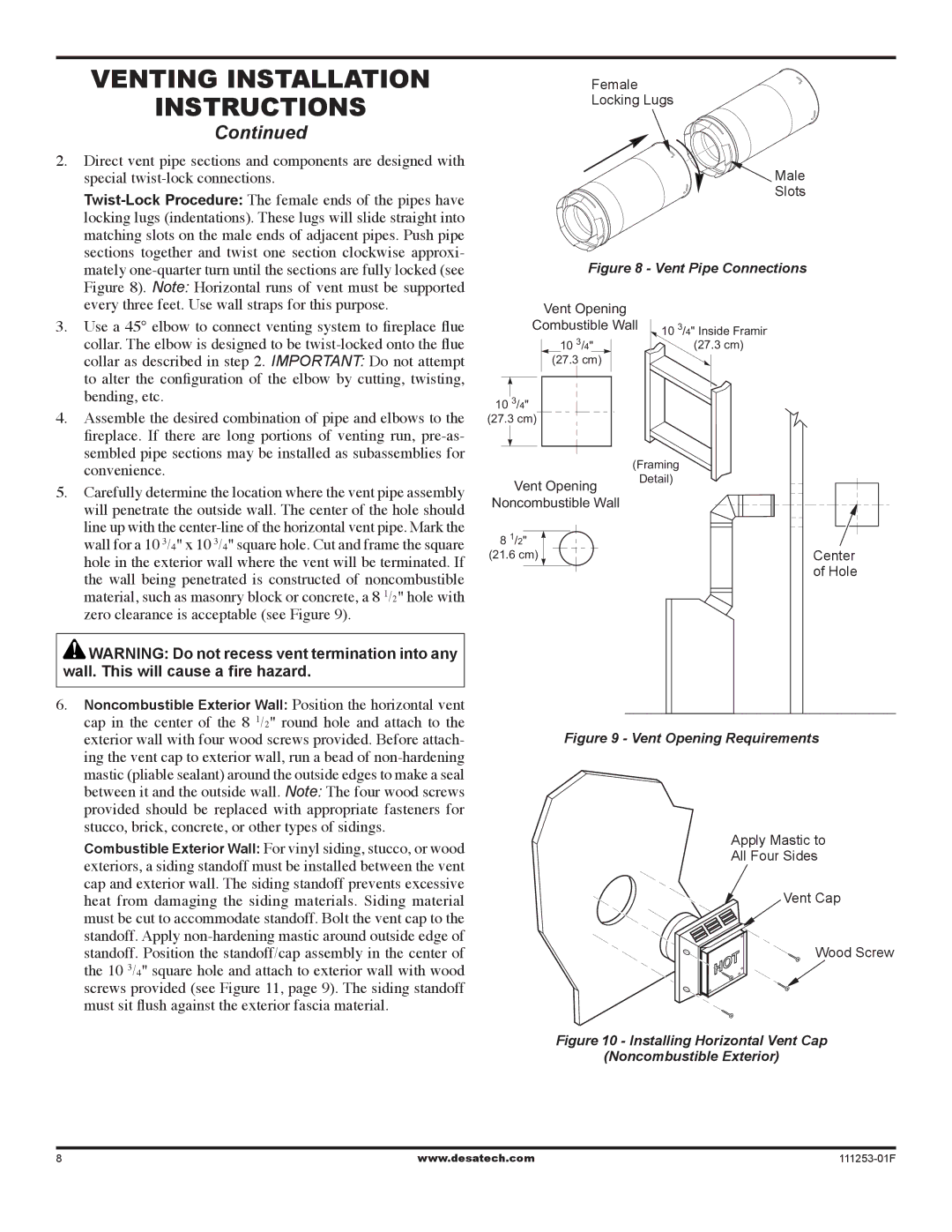
Venting Installation
instructions
Continued
2.Direct vent pipe sections and components are designed with special
3.Use a 45° elbow to connect venting system to fireplace flue collar. The elbow is designed to be
4.Assemble the desired combination of pipe and elbows to the fireplace. If there are long portions of venting run,
5.Carefully determine the location where the vent pipe assembly will penetrate the outside wall. The center of the hole should line up with the
![]() WARNING: Do not recess vent termination into any wall. This will cause a fire hazard.
WARNING: Do not recess vent termination into any wall. This will cause a fire hazard.
6.Noncombustible Exterior Wall: Position the horizontal vent cap in the center of the 8 1/2" round hole and attach to the exterior wall with four wood screws provided. Before attach- ing the vent cap to exterior wall, run a bead of
Combustible Exterior Wall: For vinyl siding, stucco, or wood exteriors, a siding standoff must be installed between the vent cap and exterior wall. The siding standoff prevents excessive heat from damaging the siding materials. Siding material must be cut to accommodate standoff. Bolt the vent cap to the standoff. Apply
Female
Locking Lugs
![]() Male
Male
Slots
Figure 8 - Vent Pipe Connections
Vent Opening
Combustible Wall |
| 10 3/4" Inside Framin | |||||||
| |||||||||
|
| 10 3/4" |
|
|
| (27.3 cm) | |||
|
| ||||||||
|
|
|
|
|
|
|
|
|
|
|
| (27.3 cm) |
|
|
|
|
| ||
|
|
|
|
|
|
|
|
|
|
|
|
|
|
|
|
|
|
|
|
10 3/4" |
|
(27.3 cm) |
|
| (Framing |
Vent Opening | Detail) |
| |
Noncombustible Wall |
|
8 1/2" |
|
(21.6 cm) | Center |
| of Hole |
Figure 9 - Vent Opening Requirements
Apply Mastic to
All Four Sides
Vent Cap
Wood Screw
Figure 10 - Installing Horizontal Vent Cap
(Noncombustible Exterior)
www.desatech.com |
